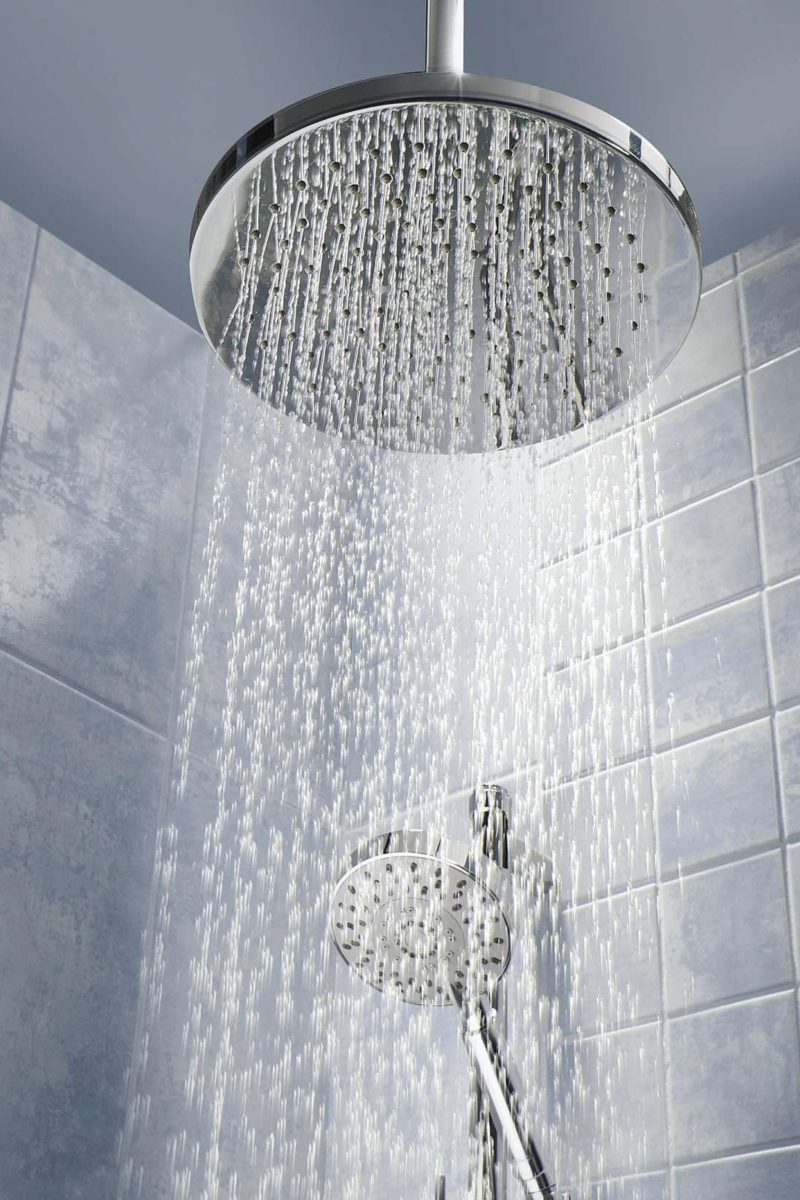This is the second of three blogs about dementia and bathing. You’ll find part 1 here and part 3 here.
Resistance to bathing is common in people with dementia. But it often blindsides the family caregiver because it seems out of character for their loved one.
Nate used to love his morning shower, and on the days he played tennis, he could hardly wait to get home and shower a second time. But Nate was diagnosed with Alzheimer’s disease three years ago, and within a year his wife, Linda, had to remind him, even coax him, to shower.
She helped him control the temperature of the water because she knew that can be a problem. Nevertheless, Nate was more and more reluctant to bathe.
Water temperature is important, but a different problem, one that gets very little attention, may be a bigger contributing factor to bathing avoidance in dementia.
Even early in the disease, brain injury caused by dementia can affect executive function—that is, the abilities to initiate action, plan ahead, make decisions, sequence and solve problems.
Think about it. Besides getting going, to take a shower you need to undress, plan ahead by placing your towel where you can reach it from the shower, make sure you have soap and a bottle of shampoo, adjust the water temperature and then wash your body without skipping or repeating parts. All of this has to happen in sequence because it won’t do to undress after you’re in the shower.
When you wash your hair, you need to tilt your head in a way that the shampoo and water don’t get in your eyes. If you forget your towel, or drop the soap, or the shampoo bottle is empty or the water temperature changes, there’s a problem to solve.
What are mere annoyances to people without a diagnosis of dementia can be confounding dilemmas after a while to those diagnosed. The experience can be overwhelming.
Another way bathing can undo people with cognitive losses is the flood of sensory stimuli it presents: the feeling of being naked; the sound of water spray in the shower or splashes in the tub; the feel of water on your skin; sounds echoing off hard surfaces in the bathroom, and how voices sound different there; the bathroom clutter of bottles, jars and tubes, and the closed-in feeling of the shower.
A flood of sensations doesn’t normally overwhelm us because we automatically filter out what’s not important to us. This is called selective attention. But filtering out extraneous stimuli becomes harder and harder for people with dementia.
Alzheimer’s sufferers who avoid bathing are not just being difficult.
They try to marshal their fading abilities to plan and sequence while simultaneously attempting to screen out distractions. That dual and discouraging struggle can leave them with an aversion to bathing. And often with the feeling that it requires a lot more energy than they can muster.
I once was chatting with a younger man, in his 50s, who had Early Onset Alzheimer’s, the type that affects people younger than 60. He mentioned he didn’t like to shower.
“Why?” I asked.
“I don’t know. I just have an aversion to showering.”
It appears that someone with Alzheimer’s can suffer from the overload that a shower presents without being aware of what is going on.
We should not assume at the time of diagnosis, or at any other time in the disease, that the faculties of executive function and selective attention are severely impaired. But when problems arise, knowing the disease can impair someone in these ways can help us better understand our loved ones’ experience and behavior and respond more appropriately.
Once Linda learned about the ways showering can overwhelm people with Alzheimer’s, she simplified the bathroom and put away anything Nate didn’t need for the bath. Then she made sure the room was warm and put towel, soap and shampoo in place. She reassured him by saying, “It’s all set up,” and, “I’m going to help you.”
She helped him undress and adjust the temperature of the water to his satisfaction and then sat outside the shower ready to help, if needed. Recently, Nate could no longer manage the actual washing, so Linda has taken that on, using a handheld shower head. She tries to offer him choices like, “Do you want me to wash your back first or your arms?” Or, “Would you like to wash your face yourself?” This helps keep it something she is doing with Nate rather than to him.
One time, she tried showering him before bed rather than first thing in the morning, but the change in the routine upset Nate, so now she tries to make everything about the shower as predictable as possible.
Linda has succeeded in showering her husband beyond a point where many give up. Even so, she may eventually have to join other caregivers who have had to find other ways to bathe their loved ones.
Fortunately, there are good alternatives to showers and tub baths that can better accommodate the individual needs and tolerances of people with dementia. I’ll discuss them and their advantages in my next blog, the third and final one on bathing.
Maggie Sullivan has come to know Alzheimer’s intimately. She was caregiver and advocate during the eight years her mother lived with the disease. For the past 30 years, she has facilitated caregiver support groups for the Alzheimer’s Association, learning from the experience of more than 300 members of those groups. The opinions she expresses here are her own. Maggie is also a writer whose essays and articles have appeared in the New York Times and elsewhere.



